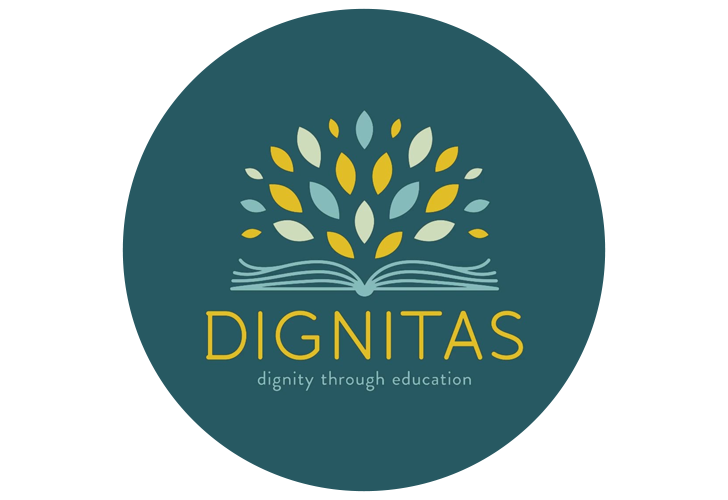
Dignitas: Using scenario-based learning for school leaders
By Rebecca Tickell
We caught up with Deborah Kimathi, Executive Director of Dignitas to find out a little more about the organisation and its work with TSP, a leading provider of teacher development and recruitment tools.

Who are Dignitas?
Dignitas are a non-government educational development organisation based in Nairobi, Kenya. They work with communities and schools across the country to help improve outcomes and opportunities for the children and adults they support.
Partnership with TSP
Dignitas started working with communities facing extreme marginalisation and poverty in the Mathare Valley back in 2008. Their vision is to empower educators and school leaders to transform opportunities for the next generation. To do this they want to harness the power of leadership to create vibrant schools, where children and teachers thrive. They work with over 270 school partners, currently from urban informal settlements across Nairobi, diverse rural areas and beyond Kenya’s borders in South Sudan.
In 2011, Dignitas’ focus moved towards steering school leaders to explore the role coaching can play in shifting and improving classroom practice. A set of competency based rubrics, developed in-house by the Dignitas team, has enabled leaders and coaches to track progress. This has helped them to identify and address any development needs, which is an essential component of a solutions focused goal setting process.

When Deborah met Professor Rob Klassen (Director of TSP) at the Global Schools Forum, just before Covid hit, Dignitas was looking to work with a partner to develop a set of contextualised scenario based learning (SBL) tools, that would measure and nudge competency gains for school leaders. Modules were designed to build leadership competence such as leading with a growth mindset, learner-centred leadership and team development and support. These innovative development tools were designed with digital accessibility in mind, and are complementary to the coaching foundations already in place.
With physical distance, access to the internet and hardware needed to access online learning all being potential barriers, it was crucial that leaders and teachers across the Dignitas community could access the SBL tools that had been developed. A solution was developed that meant colleagues could use mobile phones to network with other colleagues via the previously established WhatsApp based ‘communities of practice’ and to access the SBL tools developed in partnership with TSP.

Impact
Dignitas is just coming to the end of the first major review of the initial set of SBL modules, developed for colleagues working in primary and early years settings. The scenarios used have been reviewed for relevance by leaders and teachers who have first-hand experience of the challenges that schools and communities face locally.
As Deborah explains, the awareness of context is crucial in order to determine if the scenarios are tied explicitly to the practices and competencies they are trying to nurture. Colleagues from Dignitas are now working with TSP to tailor the scenarios using the feedback gathered. This work is essential to making sure that the SBL tools fit Dignitas’ needs, before they’re used by their schools and scaled up to reach new communities.
Due to the hierarchical nature of Kenyan society, some school leaders may have a “fear of being negatively evaluated” as explained by Valary Oyugi, a Dignitas Leadership Coach in her blog post ‘How Change in Mindset Can Shift the Quality of Teaching and Leadership’. As is often the case in other school contexts and settings, it’s difficult at first for leaders to accept and own the space that coaching affords them; a coach is not there to tell them what to do. In this regard, the scenarios that have been developed with TSP have been very helpful with the move towards a coaching approach for school leaders in the Dignitas community. For example, they have helped school leaders to work with colleagues to facilitate dialogue that encourages open conversations, supports honest self-reflection and stimulates personal growth. In fact, all of those teachers who have had access to the scenario-based learning modules, found that they were useful for preparing them for leadership roles themselves.
In November Dignitas will also have some ‘hard’ data to show the shifts in competency gains, using the observational and self-report data that they’ve gathered as part of their quality assurance process. As Deborah is expecting ~20% gains across the competencies, it’s clear that the SBL tools developed have been a success.
Analysis of the data collected centrally by TSP shows that participants’ self-efficacy as an emerging school leader significantly increased over both modules completed. Alongside this, the format and content of the SBLs led to over 98% of participants reporting increased teaching confidence as a result of completing the modules.
Next Steps
Dignitas will be using the rich feedback provided from the analyses and reports generated by TSP, in conjunction with in-house data, to build on the successes of the project so far. Deborah explains that moving forward the plan is to provide further training and development opportunities for colleagues through the development of three additional SBL modules. As they’re looking at their current position with a post-Covid lens, they’re looking to fill gaps. Improving and developing foundational literacy and numeracy will provide the impetus for the next stage of their partnership work with TSP, with the aim of growing the capacity for instructional coaching and leadership within the Dignitas community.
